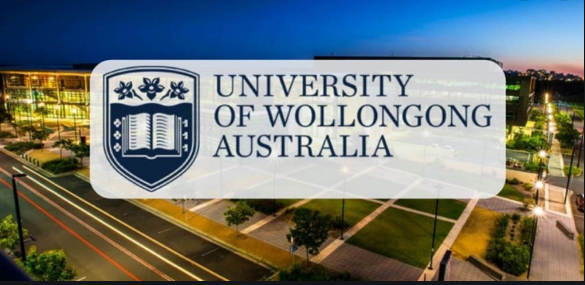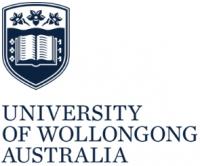Master of Nursing
The Master of Nursing is designed to prepare nurses for leadership roles in the health care system, or for further academic study in nursing at postgraduate level. The qualification is ideal for clinicians seeking to advance their careers and the following specialisations are available:
- Leadership
- Person Centred Practice
- Mental Health
- Dementia Care
- Primary Healthcare.
- Leadership
The Leadership specialisation is designed to enable registered nurses to develop their transformative leadership and management style. Each of the subjects in this specialisation, support students to gain an in-depth understanding of leadership and management that will assist with practice in a management or leadership position. With a strong focus on reflective and other evidence based theory, students will be provided with a wide range of opportunities to develop their knowledge, skills and experiences that align with person centred principles and values.
Person Centred Practice
The Person Centred Practice specialisation provides students with an opportunity to look at person centred practice from a theory and practice perspective. The theoretical constructs of the program are based on the Person Centred Practice Framework work undertaken by McCormack & McCance (2017). The key concepts and principles of person centeredness are found throughout the Master’s curriculum such as valuing the individual, respect for one another, supporting autonomy, providing dignified care experiences and creating safe and caring environments. Each of the subjects in this specialisation, support students to gain an in-depth understanding of person centred practice from the perspective of the patient and their family, healthcare staff and the organisation and how this plays out in reality. It further enables students to develop and apply skills and knowledge in facilitating, leading and evaluating person centred practice and change within the micro, mezzo and macro levels of the healthcare system.
Mental Health
The Mental Health specialisation addresses the priorities established in the National Mental Health Plan, namely: mental health promotion and prevention; partnership; and quality and effectiveness of service delivery. This degree involves the core concepts of mental health including recent developments and understanding the concepts and perspectives associated with Mental Health Nursing.
Dementia Care
The Dementia Care specialisation is a clinically focused program that prepares registered nurses for advanced practice in the specialist field of dementia. Each of the subjects in this specialisation will support students in developing the knowledge and skills to manage the health and wellbeing of individuals living with a dementia. Furthermore, students will develop skills to critically review social policy in dementia care, and develop advocacy skills to work with users, carers and colleagues in the health, social care and voluntary sectors.
Primary Healthcare
The Primary Healthcare Specialisation is designed for registered nurses who work or aspire to work in primary health care settings, including general practice, schools, community, refugee health and correctional facilities. Students will study the context and delivery of primary care in Australia, the delivery of primary care services, clinical excellence, as well as best practice principles in the provision of primary health care. This Specialisation has been developed in association with Primary Health Care Organisations and primary care professionals both nationally and internationally and has a strong emphasis on clinical skills development and leadership within general practice.
Campus Information
Wollongong
UOW’s main Wollongong campus is set in native Australian bush and is one of the most picturesque university campuses in Australia. Less than two kilometres east is UOW’s Innovation Campus – a research and technology precinct that houses innovative organisations as well as some of UOW’s leading research institutes.
Intakes
- Feb
- July
Application Processing Time in Days: 8
Application Process
Minimum English Language Requirements
| English Level Description | IELTS (1.0 -9.0) | TOEFL IBT (0-120) | TOEFL CBT (0-300) | PTE (10-90) | |
|---|---|---|---|---|---|
| Expert | 9 | 120 | 297-300 | 86-90 | |
| Very Good | 8.5 | 115-119 | 280-293 | 83-86 | |
| Very Good | 8 | 110-114 | 270-280 | 79-83 | |
| Good | 7.5 | 102-109 | 253-267 | 73-79 | |
| Good | 7 | 94-101 | 240-253 | 65-73 | |
| Competent | 6.5 | 79-93 | 213-233 | 58-65 | |
| Competent | 6 | 60-78 | 170-210 | 50-58 | |
| Modest | 5.5 | 46-59 | 133-210 | 43-50 | |
| Modest | 5 | 35-45 | 107-133 | 36-43 | |
| Limited | 4 | 32-34 | 97-103 | 30-36 | |
| Extremely Limited | < 4 | < 31 | < 93 | < 30 |
Job Opportunity Potential
We provide resources, programs, events and services to help students to establish appropriate career goals and to identify pathways and strategies to achieve those goals.
University of Wollongong support students in the following ways:
1. ORGANISE JOB FAIRS
2. JOB BOARD
3. CAREERS EVENTS & WORKSHOPS
4. WORK INTEGRATED LEARNING
PSW Opportunity
Students can get 2 years PSW visa if they complete the studies from Sydney Camus and 3 years PSW visa if the course is completed from Wollongong Campus.
Admission Requirement / Eligibility Criteria
- Course Code: 083832F
- Course Type: Full Time
- Course Level: Masters/PG Degree
- Duration: 01 Year 06 Month
-
Total Tuition Fee:
44280 AUD
Annual Cost of Living: 24505 AUD
Application Fee: N/A
Similar Programs
- Master of Computer Science (Cyber Security) at University of Wollongong
- Master of Occupational Health and Safety Extension at University of Wollongong
- Master of Occupational Hygiene at University of Wollongong
- Master of Occupational Health and Safety at University of Wollongong
- Master of Science (Leadership in Gerontology and Rehabilitation) at University of Wollongong
- Master of Professional Psychology at University of Wollongong

